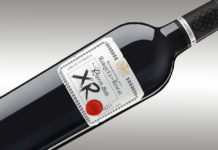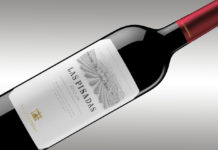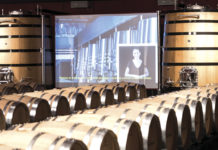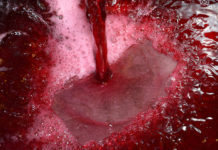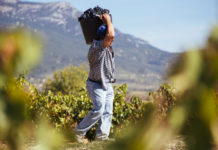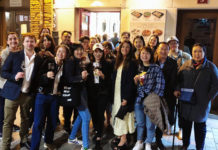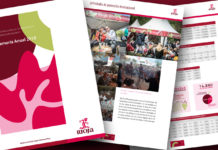The president of the DOCa Rioja looks back over his life as a winemaker
Text: Antonio Egido
Photo: Sergio Espinosa (JPEG)
Luis Alberto Lecea is the second president of the Rioja Wine Interprofessional Organization and the seventh of the Control Board of the Rioja Designation of Origin. At 52 years of age, 21 of which he has spent as a member of the Board, he defines himself as “a farmer born in San Asensio, who has always been committed to the land,” and thus hopes to bring to his role as president “the sensibilities of a grower,” trusting that, little by little, “there will be a noticeably better balance in the sector.”
Yet this Riojan grower also has a winery, and some of the grapes he harvests are delivered to his local town’s cooperative, giving him a very good overview of the world of wine in Rioja from both the grower’s and the winemaker’s perspectives. This is what leads him to assert that, in his work, “there is no business diversification as I’ve put all my eggs in one basket,” while at the same time being conscious of the fact that he has “no idea about marketing, I sell my wine because people buy it from me, not because I try to sell it.”
The first time
Luis Alberto Lecea can’t even remember the first time he was out in the vineyards, because both the grape and the bottle have been constant factors throughout his whole life. “They were a part of daily life because my father used to make wine and, as a child, I used to climb into the barrels to wash them. I don’t remember the first grape harvest I took part in either. You have to understand that when someone is born into a situation that’s an intrinsic part of their life, they’re not really aware of when they do something for the very first time. I was harvesting grapes at the age of five or six, but I’m not conscious of there being an initiation.”
What he is conscious of, however, is that his eighteenth birthday coincided with one of the most important decisions of his life: making up his mind where his future lay. “When I finished secondary school, I tried to study engineering but it rapidly became clear to me that I didn’t like it, so what I did was study oenology. I graduated from the first Oenology vocational training course taught in La Rioja. Afterwards I did my military service and, on my return, I carried on working with my father in what would eventually become a natural succession.”
He also remembers the changes in Riojan agriculture over all these years: “Previously, winemaking was spontaneous rather than technical, based on people’s know-how and the traditions passed down from generation to generation. Wines weren’t analysed for their sulphur content. You would leave a glass of wine on the table for a few days and depending on how it tasted, you would know if you needed to add sulphur or not. Everything was worked out based on taste, logic and the old tricks of the trade. They were good wines, but we weren’t as confident back then of producing a good wine as we are now.”
Grape growing has undergone more than a few changes during his lifetime. Luis Alberto Lecea recalls that during his childhood, “vine treatments came out of a backpack and, when I started work in the fields, they were still tilling with mules and using carts for transport. Next came harvesters and tractors. To start with, vines were hand planted and grafting was done in the fields, jobs that were really hard but that felt logical and normal to us as our bodies were accustomed to the work. It was also enjoyable work that, if truth be told, we miss these days, because you used to work alongside folk from the town who you would end up befriending. We used to have lunch in the fields alongside neighbours, so you would be sharing your life with them. The harvest was like a big party, and you would go out to the vineyards with a group of friends and workers with whom you would spend the whole day. Also, the wine was produced by treading the grapes and pressing it manually, for which you needed help from your neighbours.”
These days, the president of the Interprofessional Organization believes that grape growing has become very technical. “We growers have lots of production resources and we’re very self-sufficient, but we’ve lost the sense of harmony and helping others. The machinery is sophisticated; we cultivate more land with less physical work, but at the same time the land demands administration, paperwork and lots of number-crunching. Technology implies expenses which need to be recovered. Before, if people earned less, they earned less, but these days earning less implies financial ruin, because costs can get out of control. At the end of the day, working the land is not as tough, but neither is it as enjoyable.”
From being on foot to driving a tractor
Luis Alberto Lecea maintains that the land has given him everything, “but because I’ve given it my all. It’s what I’ve always done and what I mean to go on doing and I have never regretted it. I’ve gone from being a farmer who worked the land on foot to one who drives a tractor, on top of which I have to take care of the management side.”
Doubtless, the one thing that has not changed in his life is the glance towards the sky that farmers make several times a day. “As far as that goes”, he confirms, “the countryside hasn’t changed. The vines are still out in the open and we watch the sky as much as we ever did. It seems that there have been some very strange years, but not really. In 2013 there was a lot of rain and the year before it seemed as though the drought would go on forever. But I remember twenty-odd years ago there was such a severe drought that we had to buy an irrigation system, as it seemed that it would never end, but from one year to the next we had to put the irrigation system into storage as we didn’t need to use it, just the same as last year.”
Quality and quantity
According to Luis Alberto Lecea, growers have always liked to “produce a lot and have beautiful vines with lots of grapes on them. But about 10 years ago, the Designation decided to commit to quality and controlled production and the growers have taken this on board. They’ve put their minds to producing good grapes to sell at the best possible price on the market because that’s where the future lies. It’s true that a given year can be better or worse, depending on whether their targets are reached, but they have assimilated the fact that this Designation is obliged to produce good grapes that make money. I also have to stress that growers are professionals who are rooted to their land. Companies can move on with their brands but growers can’t change their surroundings and they live amongst them. I can see positive signs that continuity exists in Rioja, and that young people are committing to agriculture, maybe because of the crisis, but the process is definitely happening.”
One of the characteristics of this grower is that he belongs to a union or, as he likes to put it, an agricultural organisation. “I don’t think of it as an obligation,” he points out, “but you have to bear in mind that someone has to fight to protect our interests and the only way of doing it is to be a member, and also for the help they can give us in the face of the legal requirements imposed on growers, which is where agricultural organizations are doing a great job. My mentality is one of belonging to an agricultural organization. I’ve always belonged to one and I think everybody should be affiliated to one of them. Right now our issues concern the decline in the value of planting rights that we have lost control over, and another is that, in my position as president of the Interprofessional, we need operations within Rioja to be done under contract and for there to be more transparency in the market with the creation of a price watchdog. This is something I’ve always upheld and which is finally going to be resolved.”
This is one of the changes he hopes to achieve during his presidency of the Interprofessional Organization and the Control Board, while being absolutely clear that his future is not an institutional one but rather in his vineyards and his winery. In point of fact, he often reiterates that “I never chose to be president of the Board. I chose to be a grower, and becoming president was just an accident along the way. I’m very conscious that I have to return to my true vocation, the one I freely chose, which is the land.”








